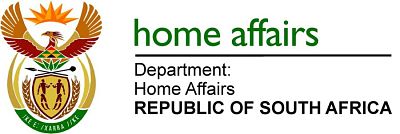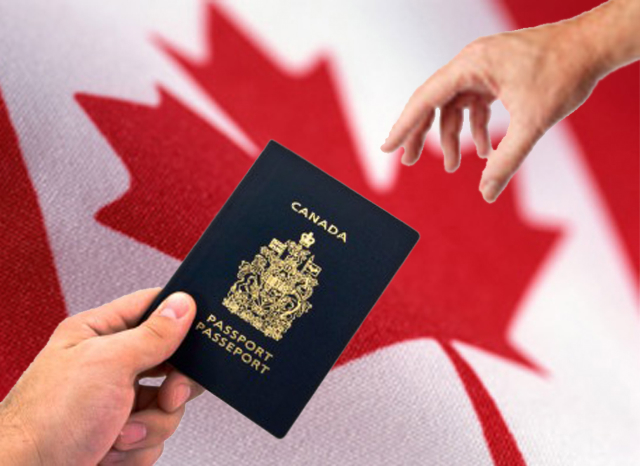(a) board any conveyance which is entering or has entered into any port of entry and on good
cause shown prohibit or regulate disembarkation from, or the offloading of, such conveyance in
order to ascertain the status or citizenship of its passengers; and
(b) request the person in control of a port of entry or any person acting under his or her authority to
order the person in charge of a conveyance to park, moor or anchor that conveyance in such
port of entry at such distance from the shore or landing place or in such position as such
immigration officer or other authorised person employed by the Director-General may direct.
(5) The person in charge of a conveyance entering or prior to entering a port of entry shall upon demand
deliver to an immigration officer-
(a) a list stating-
(i) the names of all passengers on board of that conveyance, classified according to their
respective destinations; and
(ii) such other details as may be prescribed;
(b) a list of stowaways, if any have been found;
(c) a list of the crew and all other persons, other than passengers and stowaways, employed,
carried or present on the conveyance; and
(d) a return, under the hand of the medical officer of that conveyance or, if there is no such medical
officer, under the hand of the person in charge of a conveyance himself or herself, stating-
(i) any cases of disease, whether infectious or otherwise, which have occurred or are
suspected to have occurred upon the voyage;
(ii) the names of the persons who suffered or arc suffering from such disease;
(iii) details of any birth or death which occurred upon the voyage between such port of entry
and a previous port; and
(iv) any other prescribed matter or event:
Provided that such immigration officer may-
(aa) exempt from the requirements of this subsection the master of a ship destined for any other port
in the Republic, subject to compliance with the duty to deliver such lists or return at such port
and with any directive such immigration officer may issue to the master; and
(bb) if satisfied that a name should be added to or deleted from any such lists, authorise such
addition or deletion.
(6) If a conveyance arrives at a port of entry with a passenger on board bound for a destination outside
the Republic and that passenger is not on board when the conveyance leaves such port of entry and
has not been admitted, the person in charge or the owner of that conveyance shall forfeit a sum fixed
by the immigration officer within a prescribed limit.
(7) An immigration officer may require the person in charge of a conveyance to muster the crew of such
conveyance on the arrival of such conveyance in any port of entry and again before it leaves such port
of entry.
(8) The competent officer of customs at any port of entry may refuse to give to the person in charge of a
conveyance clearance papers to leave that port of entry, unless he or she has complied with this Act
and produced a certificate issued by an immigration officer to that effect.
(9) A person in charge of a conveyance shall ensure that any foreigner conveyed to a port of entry, for
purposes of travelling to a foreign country, holds a valid passport and transit visa or port of entry visa,
if required.
(10) A person in charge of a conveyance shall be responsible for the detention and removal of a person
conveyed if such person is refused admission in the prescribed manner, as well as for any costs
related to such detention and removal incurred by the Department.
(Section 35 substituted by section 36 of Act 19 of 2004)
(Section 35 substituted by section 21 of Act 13 of 2011)
36. ……….
(Section 36 repealed by section 37 of Act 19 of 2004)
IMMIGRATION COURTS
37. ……….
(Commencement date of section 37: to be proclaimed)
(Section 37 repealed by section 38 of Act 19 of 2004)
DUTIES AND OBLIGATIONS
38. Employment
(1) No person shall employ –
(a) an illegal foreigner;
(b) a foreigner whose status does not authorise him or her to be employed by such person; or
(c) a foreigner on terms, terms and conditions or in a capacity different from those contemplated in
such foreigner’s status.
(2) An employer shall make a good faith effort to ascertain that no illegal foreigner is employed by him or
her or to ascertain the status or citizenship of those whom he or she employs.
(3) If it is proven, other than by means of the presumption referred to in subsection (5), that a person was
employed in violation of subsection (1), it shall be presumed that the employer knew at the time of the
employment that such person was among those referred to in subsection (1), unless such employer
proves that he or she –
(a) employed such person in good faith; and
(b) complied with subsection (2), provided that a stricter compliance shall be required of any
employer who employs more than five employees or has been found guilty of a prior offence
under this Act related to this section.
(4) An employer employing a foreigner shall –
(a) for two years after the termination of such foreigner’s employment, keep the prescribed records
relating thereto; and
(b) report to the Director-General –
(i) the termination of such foreigner’s employment; and
(ii) any breach on the side of the foreigner of his or her status.
(Section 38(4) amended by section 47 of Act 19 of 2004)
(5) If an illegal foreigner is found on any premises where a business is conducted, it shall be presumed
that such foreigner was employed by the person who has control over such premises, unless prima
facie evidence to the contrary is adduced.
39. Learning institutions
(1) No learning institution shall knowingly provide training or instruction to –
(a) an illegal foreigner;
(b) a foreigner whose status does not authorise him or her to receive such training or instruction by
such person; or
(c) a foreigner on terms or conditions or in a capacity different from those contemplated in such
foreigner’s status.
(2) If an illegal foreigner is found on any premises where instruction or training is provided, it shall be
presumed that such foreigner was receiving instruction or training from, or allowed to receive
instruction or training by, the person who has control over such premises, unless prima facie evidence
to the contrary is adduced.
40. Keeping of registers of lodgers by certain persons
(1) The person in charge of any premises, whether furnished or unfurnished, where lodging or sleeping
accommodation is provided for payment or reward shall, if those premises fall within a prescribed
class, in the prescribed manner keep a register of all persons who are provided with lodging or
sleeping accommodation thereon, and every such person shall sign the register and furnish therein
the prescribed particulars regarding himself or herself.
(2) Every person in charge of premises referred to in subsection (1) shall, when required to do so by an
immigration officer or police officer, produce the register referred to in that subsection for inspection.
(3) Any person who-
(a) contravenes or fails to comply with a provision of subsection (1) or (2);
(b) gives false or incorrect particulars for the purposes of subsection (1); or
(c) hinders any officer referred to in subsection (2) in the performance of his or her functions,
shall be guilty of an offence and liable on conviction to a fine or to imprisonment for a period not
exceeding 12 months.
(Section 40 substituted by section 39 of Act 19 of 2004)
41. Identification
(1) When so requested by an immigration officer or a police officer, any person shall identify himself or
herself as a citizen, permanent resident or foreigner, and if on reasonable grounds such immigration
officer or police officer is not satisfied that such person is entitled to be in the Republic, such person
may be interviewed by an immigration officer or a police officer about his or her identity or status, and
such immigration officer or police officer may take such person into custody without a warrant, and
shall take reasonable steps, as may be prescribed, to assist the person in verifying his or her identity
or status, and thereafter, if necessary detain him or her in terms of section 34.
(2) Any person who assists a person contemplated in subsection (1) to evade the processes
contemplated in that subsection, or interferes with such processes, shall be guilty of an offence.
(Section 41 substituted by section 40 of Act 19 of 2004)
42. Aiding and abetting illegal foreigners
(1) Subject to this Act, and save for necessary humanitarian assistance, no person, shall aid, abet, assist,
enable or in any manner help –
(a) an illegal foreigner; or
(b) a foreigner in respect of any matter, conduct or transaction which violates such foreigner’s
status, when applicable,
including but not limited to –
(i) providing instruction or training to him or her, or allowing him or her to receive instruction or
training;
(ii) issuing to him or her a licence or other authorisation to conduct any business or to carry on any
profession or occupation;







